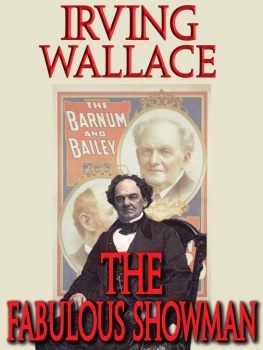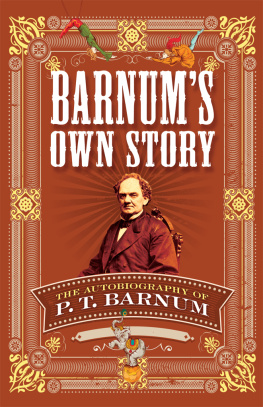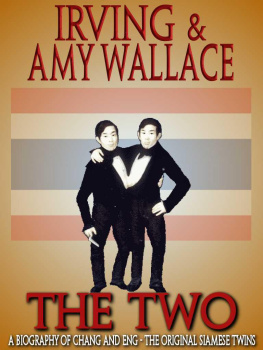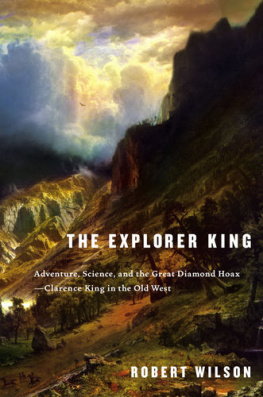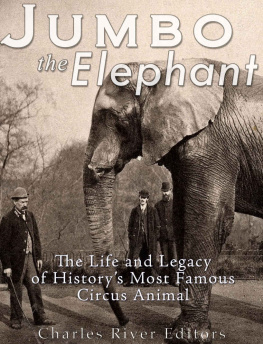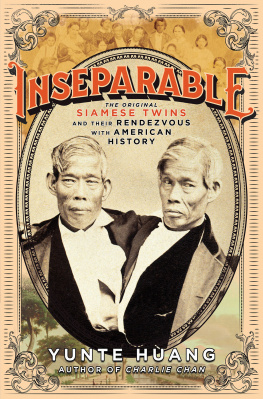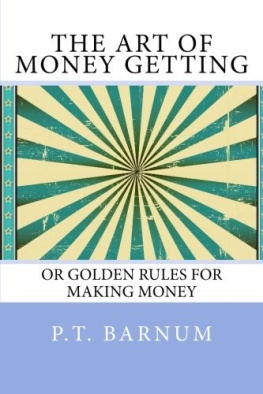THE FABULOUS SHOWMAN
Irving Wallace

Digital Edition published by Crossroad Press
2011 The Irving Wallace Estate
Copy-edited by: David Dodd
Cover Design By: David Dodd
LICENSE NOTES
This eBook is licensed for your personal enjoyment only. This eBook may not be re-sold or given away to other people. If you would like to share this book with another person, please purchase an additional copy for each person you share it with. If you're reading this book and did not purchase it, or it was not purchased for your use only, then you should return to the vendor of your choice and purchase your own copy. Thank you for respecting the hard work of this author.
OTHER CROSSROAD PRESS BOOKS BY IRVING WALLACE
NOVELS:
The Prize
The Man
The Almighty
The Seventh Secret
The Chapman Report
WITH AMY WALLACE:
The Two
AMY WALLACE
Desire
The Prodigy
Buy Direct From Crossroad Press & Save
Try any title from CROSSROAD PRESS use the Coupon Code FIRSTBOOK for a one-time 20% savings! We have a wide variety of eBook and Audiobook titles available.
Find us at: http://store.crossroadpress.com
I
Exhibit One
Gen. Washington's Nurse
O n an early August morning in 1835 a literate majority of New York City's 270,000 citizens awakened to learn of a new phenomenon in their midst. A new age was upon themthe age of showmanship.
In the weeks and months before that fateful morning, all classes of New Yorkersthe old-fashioned Knickerbockers, the nouveaux riches or Shoddyites, the professional people and artistshad prided themselves on the fact that they possessed and patronized more churches than places of amusement. Laws were blue, and life was gray. Theaters and exhibitions were regarded by most as outposts of the Devil. Sport was confined to intoxication, assault and battery, and discreet fornication.
Newspapers, as yet inhibited, were devoted to chaste reportage: the Democratic Party had nominated bantam cock Martin Van Buren for President; Oberlin College, to dramatize its attitude toward slavery, was accepting Negro students; a British chemist named James Smithson had willed 100,000 to establish an American institute "for the increase and diffusion of knowledge among men"; the National Trades' Union deplored child labor in the cotton and wool industries; the frigate Constitution had recently returned from Europe, bearing as its most distinguished passenger Edward Livingston, United States minister to France; General Sam Houston had been made the commander of the Texan army; the season's best-seller was Edward Bulwer-Lytton's Rienzi , and The Letters and Papers of Washington , edited by Jared Sparks, had just been published.
But of curiosity and wonder and sensation there was little until that early August morning when New Yorkers awakened to read in press advertisements, on street posters, in pamphlets hawked at six cents a copy, that a colored woman 161 years of age, who had been President George Washington's nurse and nanny was being placed on public exhibit in Niblo's Garden. The ancient's name was Joice Heth, the name of her sponsor Phineas T. Barnum.
The advertisements read: "The Greatest Natural & National Curiosity in The World. Joice Heth, nurse to General George Washington, (the Father of our Country).... Joice Heth is unquestionably the most astonishing and interesting curiosity in the World! She was the slave of Augustine Washington (the father of General Washington), and was the first person who put clothes on the unconscious infant, who, in after days, led our heroic fathers on to glory, to victory, and freedom. To use her own language when speaking of the illustrious Father of His Country, 'she raised him.' Joice Heth was born in the year 1674, and has, consequently, now arrived at the astonishing Age of 161 Years. She weighs but Forty-Six Pounds, and yet is very cheerful and interesting. She retains her faculties in an unparalleled degree, converses freely, sings numerous hymns, relates many interesting anecdotes of the boy Washington, and often laughs heartily at her own remarks, or those of the spectators. Her health is perfectly good, and her appearance very neat. She is a Baptist and takes great pleasure in conversing with ministers and religious persons. The appearance of this marvelous relic of antiquity strikes the beholder with amazement, and convinces him that his eyes are resting on the oldest specimen of mortality they ever before beheld. Original, authentic, and indisputable documents accompanying her prove, however astonishing the fact may appear, that Joice Heth is in every respect the person she is represented."
The announcement was oddly electrifying. It was something different in the drab monotony of everyday routine. Here was a living link to the first President, already in his grave thirty-six years and an austere deity to a new generation. Here was a hoary human whose croaking voice had cooed to the infant Washington and whose wrinkled hands had caressed him. To view this relic excavated from the dim past would be strange fun and even patriotic. And because the advertisements promised that she was a True Believer who chanted "hymns" and took pleasure in "conversing with ministers," a visit to this historic freak would certainly not offend the clergy or break its edicts against frivolity and hedonism.
Even as thousands of New Yorkers, titillated, prepared to invade Niblo's Garden for a day's diversion, thousands more considered the attraction and wondered if it was authentic. After all, who was this P. T. Barnum anyway? Was he reputable enough to stand behind his fantastic find?
Renown and repute P. T. Barnum had not in that late summer of 1835. He was, indeed, a nonentityalmost for the very last time in what was to be a most notorious and spectacular life. Later, of course, he would amass a fortune of four million dollars, and in so doing become a household name in America and throughout the world. He would become the personal friend of Queen Victoria and Abraham Lincoln, of William Ewart Gladstone and Mark Twain, of William Makepeace Thackeray and Horace Greeley. He would introduce to America the modem public museum, the popular concert, and the three-ring circus, all forerunners of vaudeville, motion pictures, and television. He would invent modern advertising and showmanship. And he would make himself an international legend. Once, meeting General Ulysses S. Grant, he would say: "General, since your journey around the world you are the best-known man on the globe," and Grant would honestly reply: "No, sir, your name is familiar to multitudes who never heard of me. Wherever I went, among the most distant nations, the fact that I was an American led to constant inquiries whether I knew Barnum."
But this was 1835, and P. T. Barnum was as yet unsuccessful and unknown. At the time when he promoted Joice Heth, he was only twenty-five, a Connecticut Yankee six foot two inches in height, a bundle of massive energy, with curly, receding hair above wide ingenuous blue eyes, a bulbous nose, a full, amused mouth, a cleft chin, and a high-pitched voice. Until this moment, he had been Jack-of-all-trades and master of none. He had served as a clerk in several retail shops, had conducted legal lotteries, had been proprietor of his own fruit store, had edited a liberal weekly, had sold hats and caps on commission, and, finally, had opened a small grocery store in New York with one John Moody as his partner, supplementing this income by running a boardinghouse with his wife. Not until his discovery of Joice Heth had he found himself. But in his flamboyant exhibition of this wizened and repulsive nursemaid, he would later admit: "I had at last found my true vocation." Equally important, his eager, waiting public had at last found a way of having fun without the fear of fire and brimstone.

